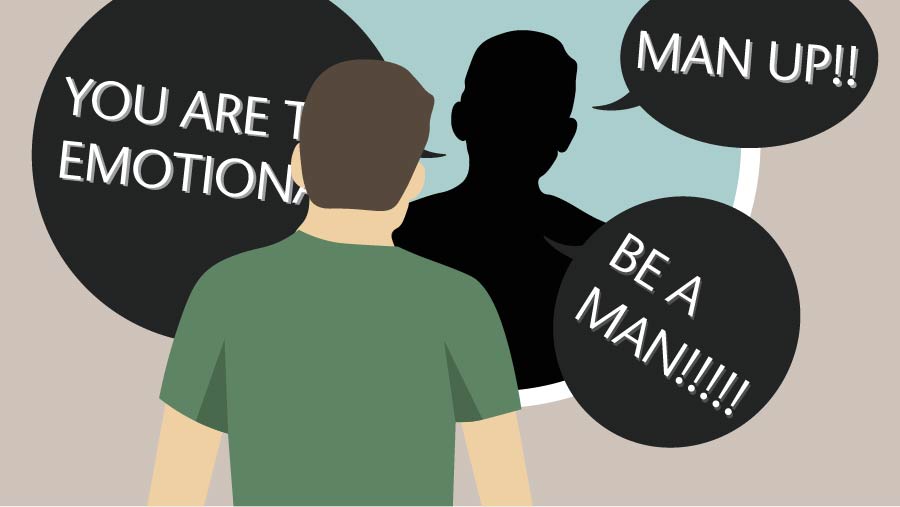Mental health stigma takes disproportionate toll on men
Men burdened by outdated societal constructs telling saying they need to ‘toughen up’
America’s efforts to tackle the stigma of mental health is notable, but not as much as the way men have been left behind in these efforts.
September 22, 2021
Despite the fact that mental health is more talked about now than ever before, it seems that men are being left behind in this discussion.
We have finally given a name to many of the mental conditions that people live with. I think this has been part of a natural progression in which we as a society try to improve everyone’s quality of life. We are finally beginning to reach a deeper level of understanding about human emotions.
However, despite our best intentions, we are still burdened by the old and outdated societal constructs that tell many of us men need to just “toughen up.”
Despite the progression in societal acceptance of mental health, Tyler Manix, senior mechanical engineering major, said he had a hard time overcoming his own understanding of masculinity when talking to some of his male residents about their struggles with mental health.
Lest we think this view is abnormal, it is a sad truth that many men are raised to think this way, which is more of an indictment on society than on any one person.
Unfortunately, this social phenomenon has created stigmatization of men who struggle with mental illness. In a society that conditions men to suppress emotions, this can make it harder for them to seek the help they may need.
When talking about maintaining a healthy mental space, Cody Schutte, junior math and human development double major, said the pandemic took a toll on his social life, keeping him from meeting and interacting with new people, which being a social person, negatively affected his well-being.
“I honestly didn’t realize what was happening until it was getting pretty bad,” Schutte said. “It was hard to talk about for sure because there’s that stigma — like men are supposed to be tough.”
Schutte’s thoughts reveal the kind of social conditioning that men endure from such a young age when they cannot even discern when or why their mental health is deteriorating. This is just one of many factors that make it harder for men to receive the help they need when it comes to addressing mental illness.
When this is coupled with the stigma directed at men’s emotions and expressing vulnerability, it is not hard to see why men’s struggles with mental health are often swept under the rug.
“That’s the whole thing about toxic masculinity,” Manix said, “it’s harder for [men] to open up to a dude.”
Unfortunately for many men, this is the situation they run into when experiencing issues with mental health. It is hard for many to even realize they are experiencing legitimate issues that might need help, much less to reach out and address those issues with others.
Exacerbating this issue is the fact we simply do not have the mental health infrastructure in place to help men with mental health concerns. Both Manix and Schutte expressed this sentiment, particularly focusing on the resources said to be available on campus.
“I told a lot of people to go to [Cougar Health Services] [when I was an RA],” Manix said. “They didn’t ever really help anyone.”
Schutte said he spoke with many residents he referred to CHS and said no one ever came back saying they felt they received adequate help.
This speaks volumes that many men do not know where they can go for help. Even more so, when they are referred to the top health service on a federally-funded university campus, they come back feeling like they did not receive any actual help or did not feel any better.
These factors all contribute to the feeling many men experience that “nobody cares” about their struggles, or even worse, “real men” do not have such feelings. It is, ultimately, a destructive mindset enforced by social stigmas that causes many men to deal with issues on their own they should have support for.










